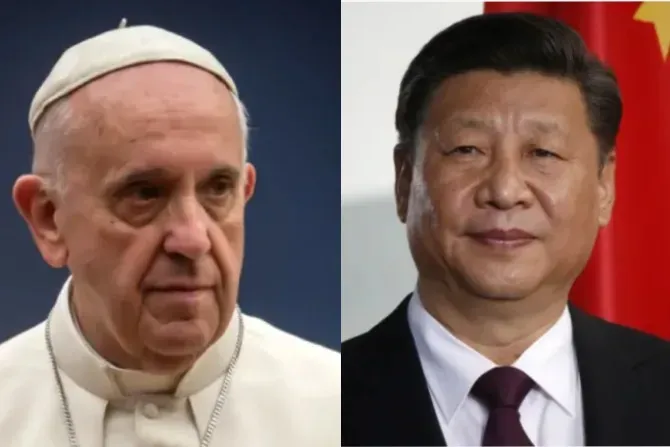To open a nunciature in Beijing, the Holy See would have to close the Nunciature of China, which has its seat in Taipei, thereby cutting ties with Taiwan, as China considers Taiwan a rebellious province.
The Holy See is one of the 14 nation-states maintaining ties with Taiwan. “For now,” Parolin said, “things remain like this.”
However, the Vatican Secretariat of State says it has also worked toward changing some agreement terms. Parolin, speaking with CNA, related such an opportunity, though it is unknown which terms of the agreement may be tweaked, given the deal is secret and its terms remain unknown to the public.
For now, Pope Francis says he is ready to go to China to pursue dialogue. A source in the Kazakh Parliament told CNA that “theoretically,” it was possible that the pope and the president could meet in Kazakhstan.
Such a meeting would have been unprecedented, though Reuters reported on Sept. 15 that the pope had made his “willingness” to meet Chinese President Xi Jinping in Kazakhstan known.
The Reuters report was confirmed to CNA by other sources, citing a series of contacts with the Chinese embassy in Italy, historically a channel of communications between the Holy See in China and the entourage of Xi Jinping in Kazakhstan.
While Xi appears to have snubbed the pope, and no encounter took place, the pope’s approach did not go unnoticed in China. Mao Ning, spokeswoman for the Ministry of Foreign Affairs of Beijing, according to Il Messaggero, praised the “benevolence and cordiality” of Pope Francis’ words.
The spokeswoman also said “China and the Vatican maintain good communication” and that they were ready to “maintain dialogue and cooperation with the Vatican and carry out the process of improving relations.”
One earlier development was the Munich Conference on Security meeting between Archbishop Paul Richard Gallagher, the Vatican’s “foreign minister,” and his Chinese counterpart, Wang Yi, on Feb. 14, 2020.
A further development was the location chosen for the latest round of negotiations for the renewal of the agreement this year: the coastal metropolis of Tianjin in Northern China.
The location was symbolically important, considering it has been one of the many vacant dioceses in China since 2005 — that is to say, without a state-recognized bishop.
The meetings were held from Aug. 28 to Sept. 2, and the Vatican delegation, according to a report by Asia News, also visited the underground bishop Melchior Shi Hongzhen.
The 93-year-old was secretly ordained as coadjutor bishop of the diocese with another cleric on June 15, 1982, by Bishop Stephano Li Side of the underground Church.
He succeeded Bishop Li Side in becoming the Bishop of Tianjin on June 8, 2019. He was living under house arrest and has been under pressure to join the state-sanctioned Chinese Patriotic Catholic Association (CPCA), according to a “Bitter Winter” report.
In a world where everything must be read in symbols, it was a strong signal from the Holy See: The delegation wanted to demonstrate that despite the desire to carry on a dialogue, the situation of Catholics in China had not been forgotten.
The latest development is the election of Bishop Joseph Li Shan of Beijing as president of the CPCA.
The Chinese Patriotic Catholic Association, founded in 1957, is the governmental body controlling the Church. Catholic priests and bishops are forced to show goodwill and abide by the requirements of the Chinese Communist Party.
The appointment of Li Shan seems a further sign of a rapprochement: He was consecrated bishop in 2007, with the consent of the Holy See, before the Sino-Vatican agreement of 2018.
It was a move suggesting improved relations following the seminal letter of Benedict XVI to the Catholics of China. Li Shan, who has recently spoken publicly in support of the Chinese government's Sinicization of religion, also experienced hard times, having hoped for a visit by Benedict XVI to China.
These developments suggest the renewal of the agreement is moving forward quickly.
According to missionary sources, the deal will be continued without changes. Therefore, the pope will persevere in his attempt to dialogue with China, and, at the same time, China will continue, unhindered, to pressure religions, including Catholicism.
As one of the people involved in the negotiations told ACI Stampa, CNA’s Italian partner agency: “The Holy See extends a hand, but it knows that on the other side there is a knife, and the blade is directed toward our hand. Every time we reach out our hand, our hand bleeds. And yet, we must continue to extend our hand.”







